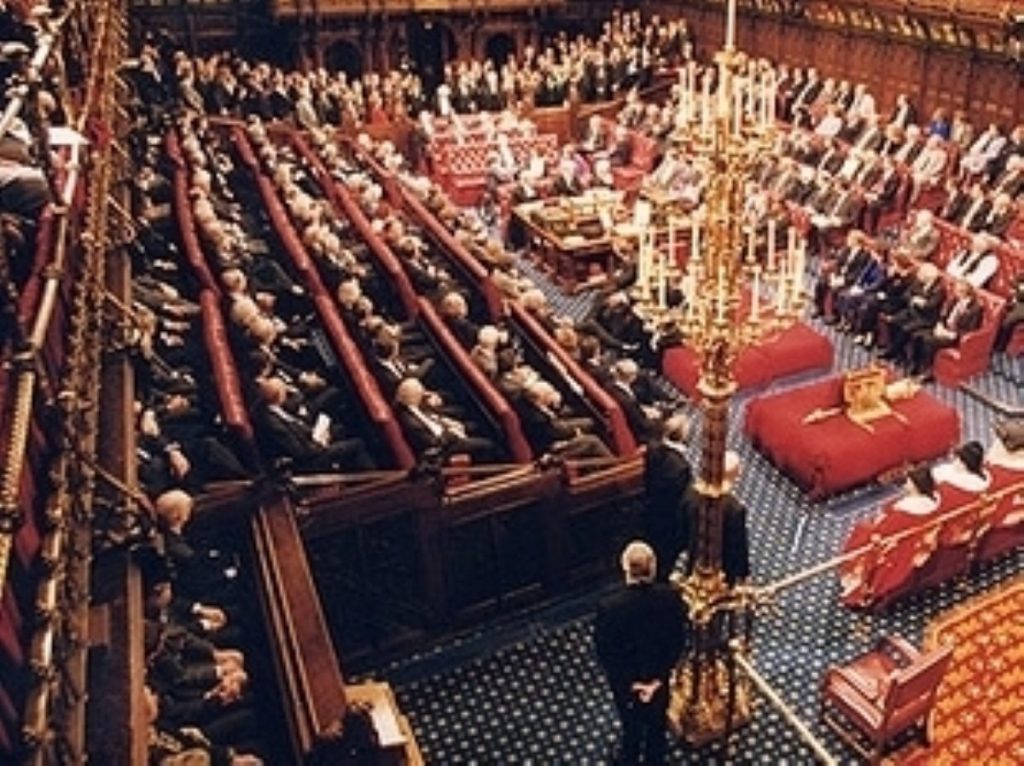Queen’s Speech 2010: Key issues
Here’s a summary of the policies announced within the Queen’s Speech that aren’t going to be resulting in new legislation.
Economy
Broadband
The government will look at “market-led” approaches to rolling out fibre-optic rather than copper broadband. Companies wishing to use infrastructure already in place will be assisted in a bid to reduce costs and drive commercial investment. Infrastructure sharing can be achieved using existing legislation, it is thought, but the government appears willing to bring more legislation to the House if necessary.


High speed rail
The government wants “a truly national high speed rail network” but knows this will only be achieved in phases. The network would link to airports to provide alternatives to short-haul aviation. It is thought that investment in high speed rail pays for itself in the long run.
Immigration
The limit on non-EU immigrants will go ahead. The government is also looking to up-skill British workers to reduce the need for overseas employees. Consultation with business and other interested sectors will take place before any final decision on the implementation mechanism. Meanwhile immigration minister Damian Green will lead a review into how to end child detention.
Flexible working
Rights to flexible working will be expanded out so grandparents and neighbours can request it along with parents. The government wants more time to consult on this issue. The government is also considering legislative and non-legislative measures to reduce the gender pay gap, including flexible parental leave and the promotion of gender representation on company boards.
– – – – – – –
Public services
Big society
The Conservatives’ ‘big society’ agenda found its way into the Queen’s Speech as she announced her government would enhance the role of social enterprises, charities and cooperatives. There are wider ambitions towards “radical reform” of the public services, which the big society agenda would go a long way to address. Cabinet Office minister Francis Maude will lead the work in this respect. Where appropriate, public service markets will be opened up to allow social enterprise, charities and cooperatives to bid to run public services. The proposals also include plans to give public sector workers a new right to form employee-owned cooperatives. Early measures are set to be introduced by the autumn.
Public health
The Queen said action would be taken “to improve public health and reduce health inequalities”. A new public health service will be created which will be protected by the ring-fencing of budgets. Local NHS organisations will hold the budgets and will be tasked with improving the health of their residents. GPs will be handed revised incentives to prioritise preventative measures.
Social care
A commission on long-term social care will be established to secure, as the Queen put it, “a sustainable structure of funding”. This will report within a year as the NHS works out how to ease the cost burden faced by individuals and their carers.
Part of the solution, the government hopes, is giving them more control. A “fair partnership” between the state and the individual will be sought. Meanwhile, steps will be taken to “accelerate the pace of reform”. Services will be personalised as quickly as possible and careers will be helped by receiving direct payments and other support for their own needs.
– – – – – – –
Foreign policy
Some of Britain’s profoundest foreign policy problems are confronted by the monarch in the Queen’s Speech.
Afghanistan, Pakistan and terrorism
She told the Lords and Commons that the government will work with the Afghan government and Pakistan for “lasting security and stability” there. The terrorist threat was also confronted in references to nuclear non-proliferation and Iran. There are “serious international concerns” about the latter, the Queen said. The nuclear non-proliferation treaty review conference will be the big opportunity to make progress here.
Israel and climate change
Other long-term campaigns are referred to. A “viable Palestinian state” is being pursued, despite the apparent lack of progress seen recently. On climate change, the forthcoming conference in Mexico will be an opportunity to “combat climate change”. The government intends to do all it can both at home and abroad to tackle climate change – David Cameron has said he wants this government to be the greenest ever.
India
The speech also gives indications as to the foreign policy stance of the new government. India gets special attention, with the Queen indicating an “enhanced partnership” can be looked forward to. This growing economy is “critical” to the government’s objectives – the Foreign Office is hoping Britain and India’s “deep and historic ties” will help its diplomats make the most of India’s strategic importance.
There are details about the pomp and ceremony to come, too. The Queen will be addressing New York on July 6th to address the UN general assembly – the first time she has done so since 1967. Before then she will be visiting Canada. There is another visit to look forward to: the Pope is coming to Britain in September. This will be the first ever official papal visit to Britain.
– – – – – – –
Political reform
House of Lords reform
The principles around which House of Lords reform will take place have been established, but the project is not ready for a bill yet. Instead, it will go to a committee to provide specific recommendations on details by the end of the year. The main principle is that the second chamber should be wholly or mainly elected on the basis of proportional representation.












